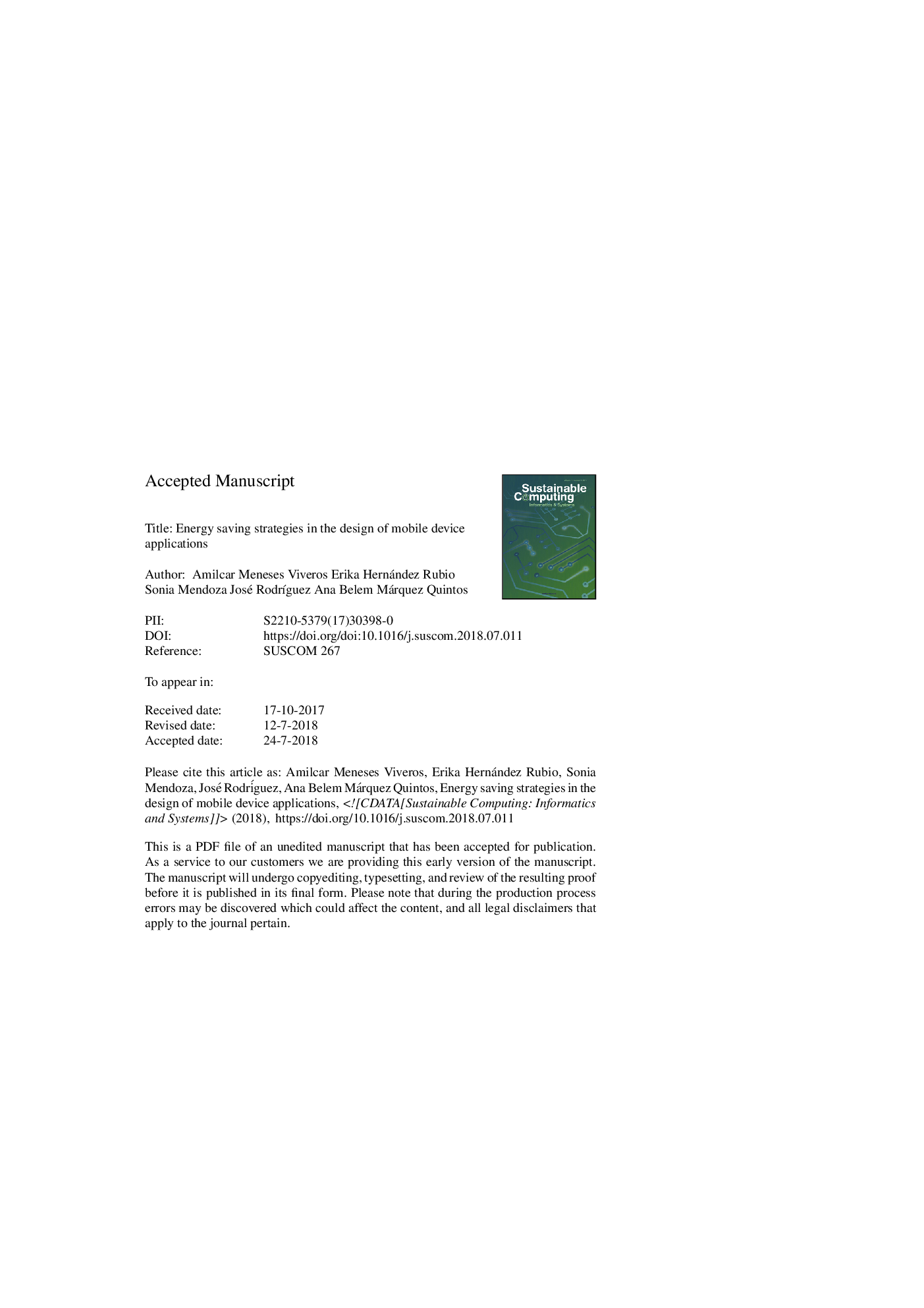| Article ID | Journal | Published Year | Pages | File Type |
|---|---|---|---|---|
| 9952320 | Sustainable Computing: Informatics and Systems | 2018 | 34 Pages |
Abstract
As is well known, the main restriction in mobiles devices is battery duration, so strategies for energy saving in mobile devices should be designed and implemented. In this paper, key considerations in the design of mobile applications are studied from the energy consumption point of view. It has been found that rendering and processing tasks requiring high computational complexity entail increased consumption of energy. Consequently, different techniques, developed at the hardware and operating system levels, have been proposed to improve energy efficiency in mobile devices. On one hand, at the application level, there also exist some approaches, such as Mobile Computation Offloading (MCO) and Graphical User Interface (GUI) design. However, these approaches only consider connectivity and usability problems, putting battery management aspects aside. On the other hand, there are several surveys on saving energy in mobile devices, but many focus on some specific strategies, such as the use of wireless networks or MCO. The main contribution of this work is a literature review, analyzing various strategies for energy saving, emphasizing in those that deal with the development of applications. Unlike other similar articles, we have included several strategies from the literature and those developed and tested by our research group. As shown by our results, the studied strategies prevent energy consumption considerations from affecting other aspects of the application design, such as GUI adaptability and information management.
Keywords
Related Topics
Physical Sciences and Engineering
Computer Science
Computer Science (General)
Authors
Amilcar Meneses-Viveros, Erika Hernández-Rubio, Sonia Mendoza, José RodrÃguez, Ana Belem Márquez Quintos,
